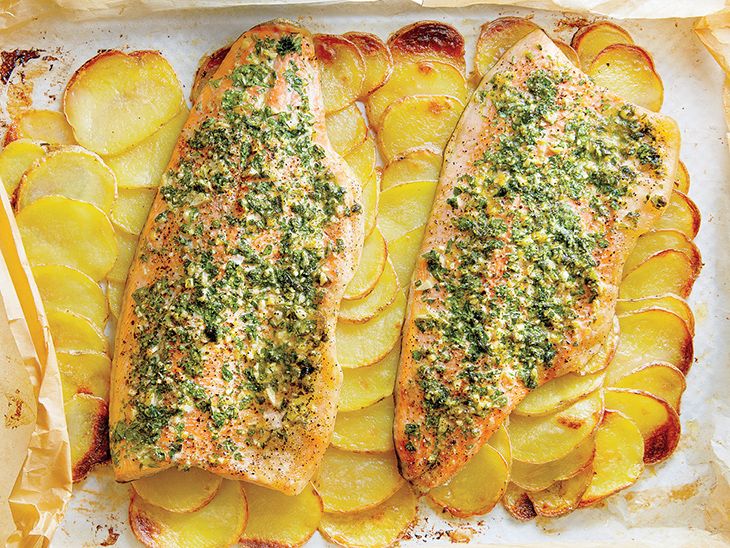18. Trout

Trout, like its relative salmon, is endemic to North America and can be found in its many cold-water rivers and lakes. Although there are many varieties of trout, rainbow trout is the most commonly seen on restaurant menus and at fish markets. You’ve certainly heard “the memo” by now: some varieties of fish are high in heart-healthy omega-3 fatty acids, lean protein, and key vitamins and minerals, such as antioxidants in vitamins B2, B12, and D. Consuming seafood, including fish, is, however, a well-known risk factor for elevated uric acid levels in the blood, which can lead to a gout attack. And if you already have gout, this is the last thing you want. Purines are naturally produced by the body and obtained through food. The problem starts when your body manufactures too many purines or you consume too many purine-rich foods. Your uric acid levels will first rise. The extra uric acid (which your body cannot excrete) then crystallizes. These crystals accumulate in the joints and surrounding tissues, causing the painful gout symptoms. Gout, also known as gouty arthritis, is a frequent kind of arthritis that causes acute pain, swelling, and tenderness in at least one joint. Purine levels in fish range from low to moderate to high. As a result, if you consume an excessive amount of some types of fish, purines might accumulate and cause a painful gout attack. Fish and seafood in the “moderate-purine category,” or those with a purine concentration of 100 to 400 milligram per 100-gram serving, are best ingested in moderation. If you have gout, you should avoid fish in the “high-purine group,” or those with 400 milligrams or more of purine per 100 grams of fish. Unfortunately, several of the most popular forms of fish are high in purines. Crab, lobster, trout, and tuna are among them. Herring, ocean perch, mackerel, sardines, scallops, and trout are other fish with high purine content. They can all cause a “gout flare,” as defined by the Centers for Disease Control and Prevention. If you have gout, you are surely aware that you must be cautious about the types of fish you consume. You should keep your purine levels low to avoid triggering a gout attack. Some species of fish are safe to eat, while others should be consumed in moderation. While you are learning, mastering alternate cooking methods may be beneficial. Purine content can be reduced by using “moist” preparation procedures.



